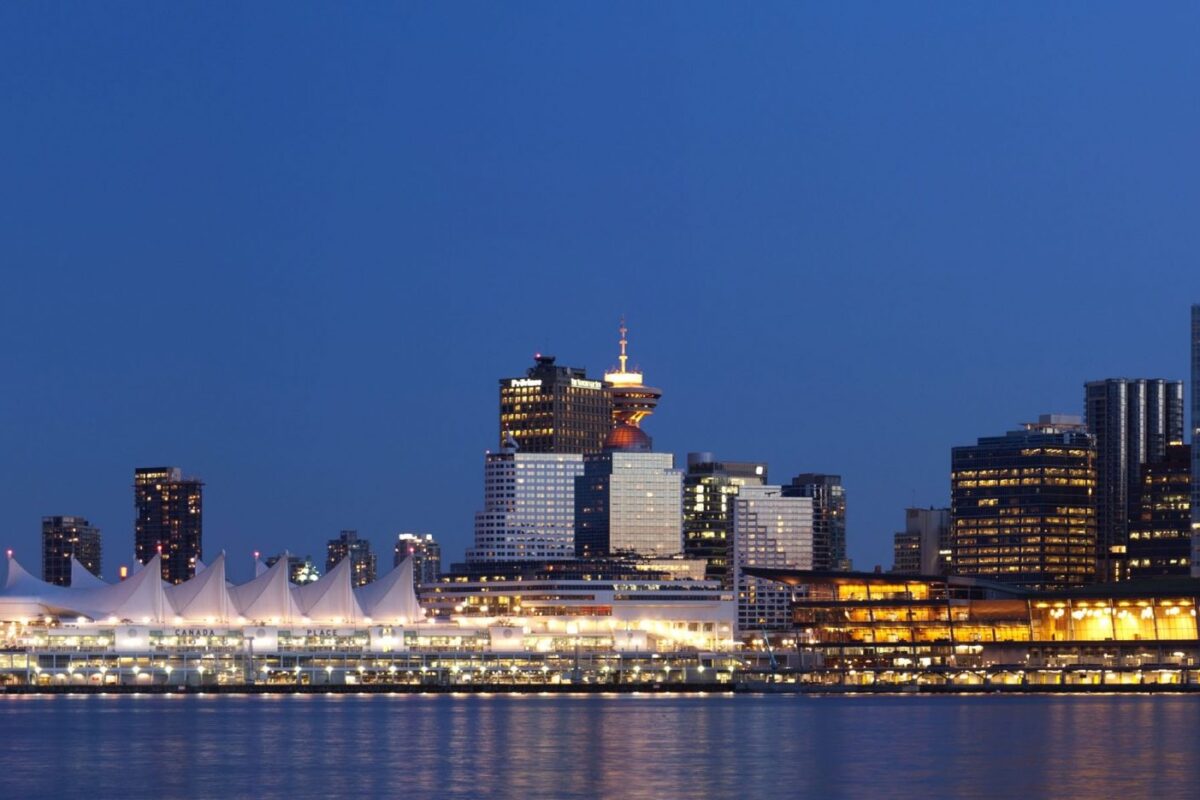10th largest economy in the world
Canada is a thriving country that claims the 10th largest GDP worldwide, fueled in part by its vast natural resources, significant industrial base, tourist attraction, and vibrant seafood industry. According to Statistics Canada, Canada’s economy is extremely service-oriented, with 78.9% of Canadians working in a service-related job, though it is perceived that Canada is growing due to its natural resources. Though the manufacturing sector is relatively small in comparison to the service sector, it is the cornerstone of Canadian economy, with 68% of its exports constituting merchandise exports.
World-class education system
Canada tops the list as the most educated country in the world. According to the OECD over 56 percent of adults in the Great White North have earned some education after high school. Canada’s high academic standards and rigorous quality controls assure that you will be earning a high-quality education that will open doors for your future and benefit your career over the long term. A Canadian degree, diploma or certificate is globally recognized as being equivalent to those obtained from the United States or Commonwealth countries.
The quality of education and living standards in Canada are amongst the highest in the world, but the cost of living and tuition fees for international students are generally lower than in other countries such as the United States and the United Kingdom. Under Canada’s highly dynamic and hands-on academic environment, you will not only acquire knowledge and skills in analysis and communication, but you will also learn how to express yourself, demonstrate your creativity, and develop your self-confidence.
Canada has world’s top universities, such as McGill University, the University of Toronto, McMaster University, and the University of British Columbia which rank among the world’s top 100 academia.
Booming tech industry
Canada’s evolution over the years as a fount of technology is mirrored by the growth of the Tech sector. Toronto and other parts of Canada have been feasting on tech talent as immigrants are diverting from the U.S. due to stringent immigration policies like temporary suspension of H1B1 Visa which facilitated immigration for thousands of skilled immigrant workers every year. Even during coronavirus outbreak, immigrants in the U.S. faced unusual threat to employment, where in the U.S. is closing doors for immigrants while Canada is attracting an impressive flow of technology jobs and investment.
Tech companies with global footprint are setting up hubs and expanding operations in Canada. The number of tech jobs in Toronto has risen steeply with an increase of 54% from about 148,000 to 228,000 in the past since 2013. Canada certainly displays compelling potential with its mix of talent, technology, and universities together with highly skilled immigrants possessing STEM degrees even before arrival into the country.
Vancouver and Calgary are booming towards clean tech innovation, while Montreal has established itself as a hub for innovation in Artificial Intelligence and game development. Overall, Canada is attempting to attract highly skilled foreign professionals through visa programs like the Global Talent Stream with fast processing time where you move to Canada as quickly as a month as well as provincial tech programs that offer an expedited immigration pathway for people with tech skills .
Multiculturalism and immigration supportive
Over several decades, multiculturalism has evolved from a humanitarian approach to an official policy which became a defining part of Canada’s national identity. Canadian Prime minister Justin Trudeau government’s mantra is “diversity is our strength” which depicts the characteristic Canadian willingness to include various ethnic groups towards the cultural enrichment of Canada.
Canada has been accepting more immigrants per capita than any other developed Western countries. Particularly 310,000 new permanent residents were welcomed by Canada in 2018 and further it is expected that Canada will welcome nearly one million immigrants over the next three years.
In Canada, multiculturalism has always been a form of integration where people respect the diversity of languages, religions, and cultures. Multiculturalism exists when people accept and encourage many cultures to thrive in a society which can be seen particularly in major cities like Toronto, Vancouver, and Montreal. Toronto is one of the most multicultural cities in modern history and this is because of a unique mix of various dominant groups like the British, Irish, Indian, Chinese, Italian and smaller groups like the Dutch, Japanese and Romanians.
Most inclusive country in the world
Canadians have always prided themselves as being open and inclusive. According to Ipsos recently released research, Canada ranks 1st among 25 countries on inclusiveness. Canada stood 2nd on LGBTQ Inclusiveness Score after France as the country has strong support for the LGBTQ community which is evident as Canada became the 4th nation worldwide to legalize same-sex marriage and the first nation outside of Europe in 2015.
Canada actively promotes inclusion and respect for diversity at home and abroad. Establishing equality is a top challenge that the entire human society is facing at the moment, but Canada seems to manage this challenge efficiently in social, economic, cultural, and civic inclusion. In Canada it is apparent that women have a strong voice, along with this basic women’s rights such as voting, birth control access and abortion are long-established and safeguarded in the country.
Universal health-care system
Canada’s health care system has prominent features that distinguish it from virtually all other high-income countries providing universal health care coverage. Firstly, healthcare in Canada is delivered through the provincial and territorial systems called Medicare, which is publicly funded. Canada has one of the world’s highest life expectancy rates and stands at 18th position in the world for life expectancy.
Canadian citizens have the second highest quality of life in the world, according to The World Economic Forum ranking, which ranks countries by quality of life using criteria like access to medical care, sanitation, and shelter, as well as education, life expectancy, and personal freedoms.
Employee entitlements
Canada is exceptional as “provincial law governs annual paid leave, unless the employee falls under federal jurisdiction.” All provinces guarantee two weeks paid vacation, except for three weeks in Saskatchewan. Along with this the employees receive statutory holidays depending on the province. Canadians also have secured access to a variety of monetary protections including Employment Insurance (EI), old age security, the Canadian Pension Plan (CPP), and a federal childcare benefit.
The minimum wage in Canada ranges from $11 to $15 among different provinces and it stands among one of the highest in the world. Canadian workers also have access to new family-friendly benefits and progressive workplace policies that allow up to 18 months of parental leave, with the mother and father able to share the leave however they choose.
Beautiful and safe place
The landscapes of Canada range from arctic tundra and BC’s snow-capped mountains, to beautifully desolate prairies and PEI’s rugged coastlines along with interesting architecture in Montreal’s historic buildings. From coast to coast to coast, the country is home to vibrant and culturally rich cities, along with incredible natural wonders.
According to the Global Peace Index of 2018, Canada was ranked the 6th most peaceful nation in the world. Be it protection of citizens on the streets, guarding them against misconduct, or even shielding them against online crime, Canada has done it all. Canada is also known for their strong gun control as they have a comparatively peaceful approach to foreign diplomacy.
Stable democratic political system
The Economist ranked Canada as third-most democratic nation according to its Democracy Index in the year 2006. Canada’s political system is a parliamentary democracy, with its own social and political institutions. Though Canadian governments shift between various liberal and conservative parties depending on the political climate; there is no moral shift as core values and ideologies like women’s and LGBT rights, environmental concerns, and immigration, are shared by the political parties.





